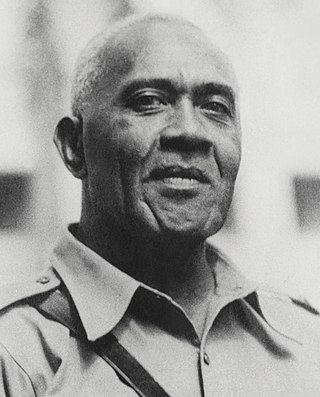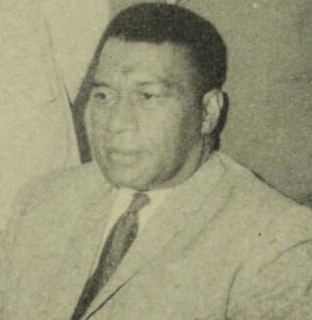Related Research Articles

Fiji, officially the Republic of Fiji, is an island country in Melanesia, part of Oceania in the South Pacific Ocean. It lies about 1,100 nautical miles north-northeast of New Zealand. Fiji consists of an archipelago of more than 330 islands—of which about 110 are permanently inhabited—and more than 500 islets, amounting to a total land area of about 18,300 square kilometres (7,100 sq mi). The most outlying island group is Ono-i-Lau. About 87% of the total population of 924,610 live on the two major islands, Viti Levu and Vanua Levu. About three-quarters of Fijians live on Viti Levu's coasts, either in the capital city of Suva, or in smaller urban centres such as Nadi or Lautoka. The interior of Viti Levu is sparsely inhabited because of its terrain.

Nadi is the third-largest conurbation in Fiji. It is located on the western side of the main island of Viti Levu, and had a population of 42,284 at the most recent census, in 2007. A 2012 estimate showed that the population had grown to over 50,000. Nadi is multiracial with many of its inhabitants Asians, Indian or Indigenous Fijians, along with a large transient population of foreign tourists. Along with sugar cane production, tourism is a mainstay of the local economy.

Articles about people, places, things, and concepts related to or originating from Fiji, include:

RatuSir Penaia Kanatabatu Ganilau was a Fijian politician who served as the first President of Fiji, serving from 8 December 1987 until his death in 1993. He had previously served as Governor-General of Fiji, representing Elizabeth II, Queen of Fiji, from 12 February 1983 to 15 October 1987.

RatuSir George Kadavulevu Cakobau was a Fijian statesman and athlete. A great-grandson of Ratu Seru Epenisa Cakobau, the paramont chief of Bau who had unified all the tribes of Fiji under his reign in the mid-1800s, Ratu Sir George held the traditional titles of Vunivalu of Bau and Tui Levuka and thus was considered by many as Fiji's highest-ranking traditional chief. Ratu Cakobau was appointed Governor-General of Fiji in 1973, becoming the first indigenous Fijian to serve as the viceregal representative of Elizabeth II, Queen of Fiji.

RatuSir Josefa Lalabalavu Vanayaliyali Sukuna was a Fijian chief, scholar, soldier, and statesman. He is regarded as the forerunner of the post-independence leadership of Fiji. He did more than anybody to lay the groundwork for self-government by fostering the development of modern institutions in Fiji, and although he died a dozen years before independence from the United Kingdom was achieved in 1970, his vision set the course that Fiji was to follow in the years to come.
The House of Chiefs in Fiji consists of the Fijian nobility, composed of about seventy chiefs of various ranks, majority of which are related. It is not a formal political body and is not the same as the former Great Council of Chiefs, which was a political body with a prescribed constitutional role, although the membership of the two bodies did overlap to a great extent.

The Colony of Fiji was a Crown colony that existed from 1874 to 1970 in the territory of the present-day nation of Fiji. London declined its first opportunity to annex the Kingdom of Fiji in 1852. Ratu Seru Epenisa Cakobau had offered to cede the islands, subject to being allowed to retain his Tui Viti title. His demand was unacceptable to both the British and to many of his fellow chiefs, who regarded him only as first among equals, if that. Mounting debts and threats from the United States Navy had led Cakobau to establish a constitutional monarchy with a government dominated by European settlers in 1871, following an agreement with the Australian Polynesia Company to pay his debts. The collapse of the new regime drove him to make another offer of cession in 1872, which the British accepted. On 10 October 1874, Britain began its rule of Fiji, which lasted until 10 October 1970.

Ambalal Dahyabhai Patel, better known as A.D. Patel, was an Indo-Fijian politician, farmers' leader and founder and leader of the National Federation Party. Patel was uncompromisingly committed to a vision of an independent Fiji, with full racial integration. He was one of the first to advocate a republic, an ideal not realized in his lifetime. He also advocated a common voters' roll and opposed the communal franchise that characterized Fijian politics.
Tui Nadi is the title of the Paramount Chief of Nadi, in Fiji. The Tui Nadi hails from the village of Narewa, and exercises chiefly authority over the subdistricts of Nadi and Sikituru.

Nadroga-Navosa is one of the fourteen provinces of Fiji and one of eight based in Viti Levu, Fiji's largest island. It is about 2,385 square kilometers and occupies the South-West and Central areas of Viti Levu, Fiji's principal island. The province includes the Mamanuca Archipelago,Malolo Islands, off the west coast of Viti Levu, Vatulele, as well as the remote Conway Reef in the southwest. The population at the 2017 census was 58,931, being the fifth largest province. The main town in Nadroga-Navosa is Sigatoka, with a population of 9622.

Fiji was an independent state from 1970 to 1987, a Commonwealth realm in which the British monarch, Elizabeth II, remained head of state as Queen of Fiji, represented by the Governor-General. The state was the successor of the British Colony of Fiji which was given independence in October 1970 and it survived until the Republic of Fiji was proclaimed on 6 October 1987 after two military coups, at which time Queen Elizabeth II was removed as head of state, albeit, without any consent from the people of Fiji themselves.
Ratu Apenisa Naevo is a Fijian rugby union footballer. His usual position is at lock. He has earned over 30 caps for the national team, after debuting in 1996 and going on to represent them at the Rugby World Cup.
Samueli Dawai Naulu,, was a Fijian rugby union footballer. He was born in Narewa, Nadi. He played as a wing. He played for the USA Perpignan team in the Heineken Cup as well as playing for the same team in the French Top 14 Competition.
Rugby union is the most popular sport in Fiji ; however, rugby league, netball, and association football are also widely played. Various forms of traditional boat racing and wrestling are also popular.
Ratu Apisai D. Naevo was a Fijian Chief and political leader. As Tui Nawaka, he was the paramount chief of the vanua of Nawaka, Nadi. He had two sons, Apenisa Naevo and Semisi Naevo, both of whom played rugby for Fiji. A retired school teacher, he was a member of the Ba Provincial Council and various boards. He was also deputy chairman of the Fiji Pine Limited Board during its tumultuous years after George Speight was removed as chairman by the then Minister for Agriculture, Poseci Bune, in 1999.
Naulia Dawai is a Fijian rugby union player. He primarily plays as a flanker. Dawai currently plays for the Seattle Seawolves of Major League Rugby (MLR).
Ratu Josateki Sovau was a Fijian rugby union player, coach and Taukei Naua. He played as a prop.
Savenaca Aria was a Fijian rugby union footballer and later a coach. He played as a centre.

RatuNapolioni Naulia Dawai was a Fijian chief and politician. He served as a member of the Senate and House of Representatives from 1970 to 1986.
References
- 1 2 Luke Dawai ESPN
- 1 2 Ratu Luke Dawai Pacific Islands Monthly, August 1970, p141